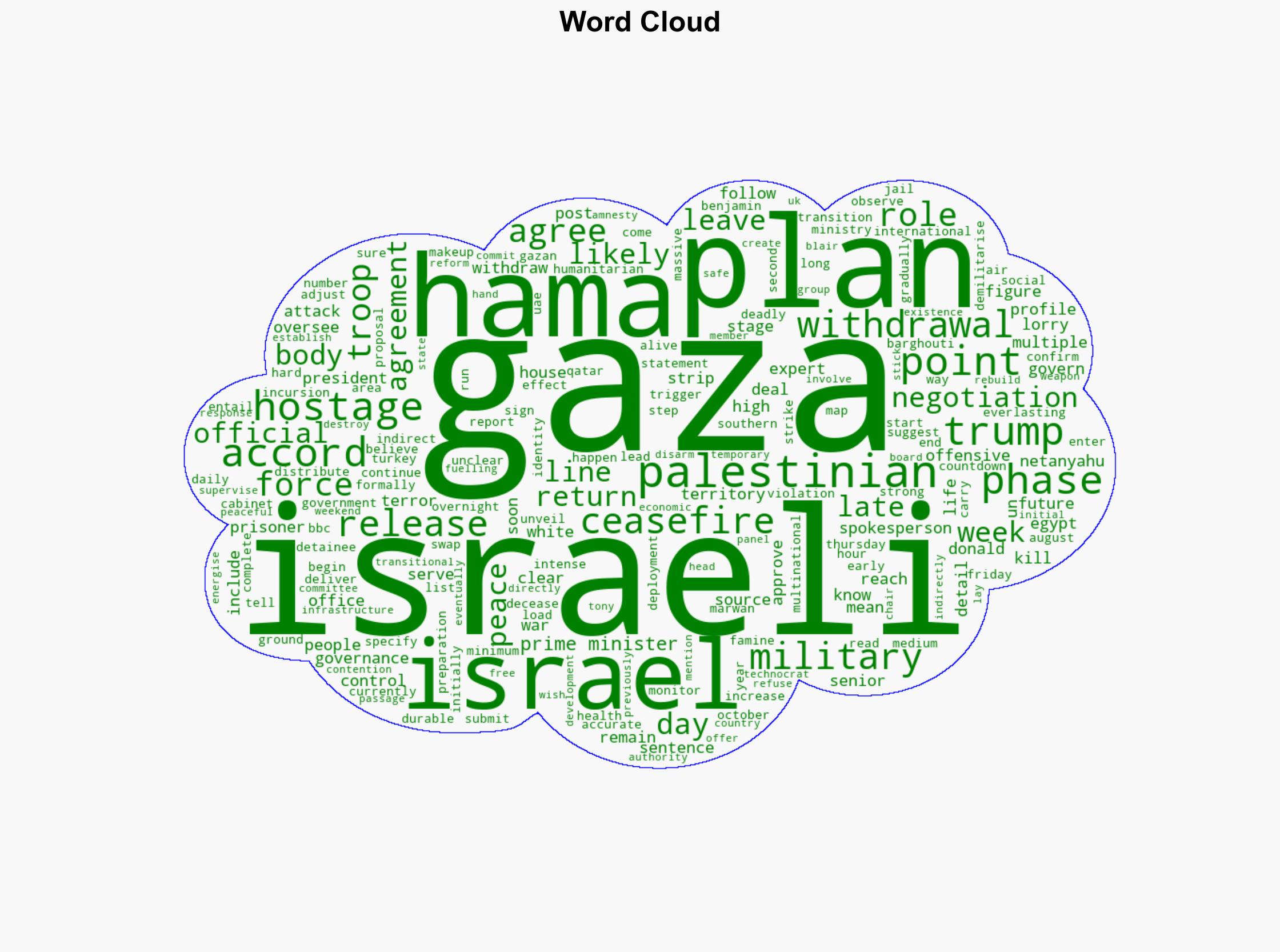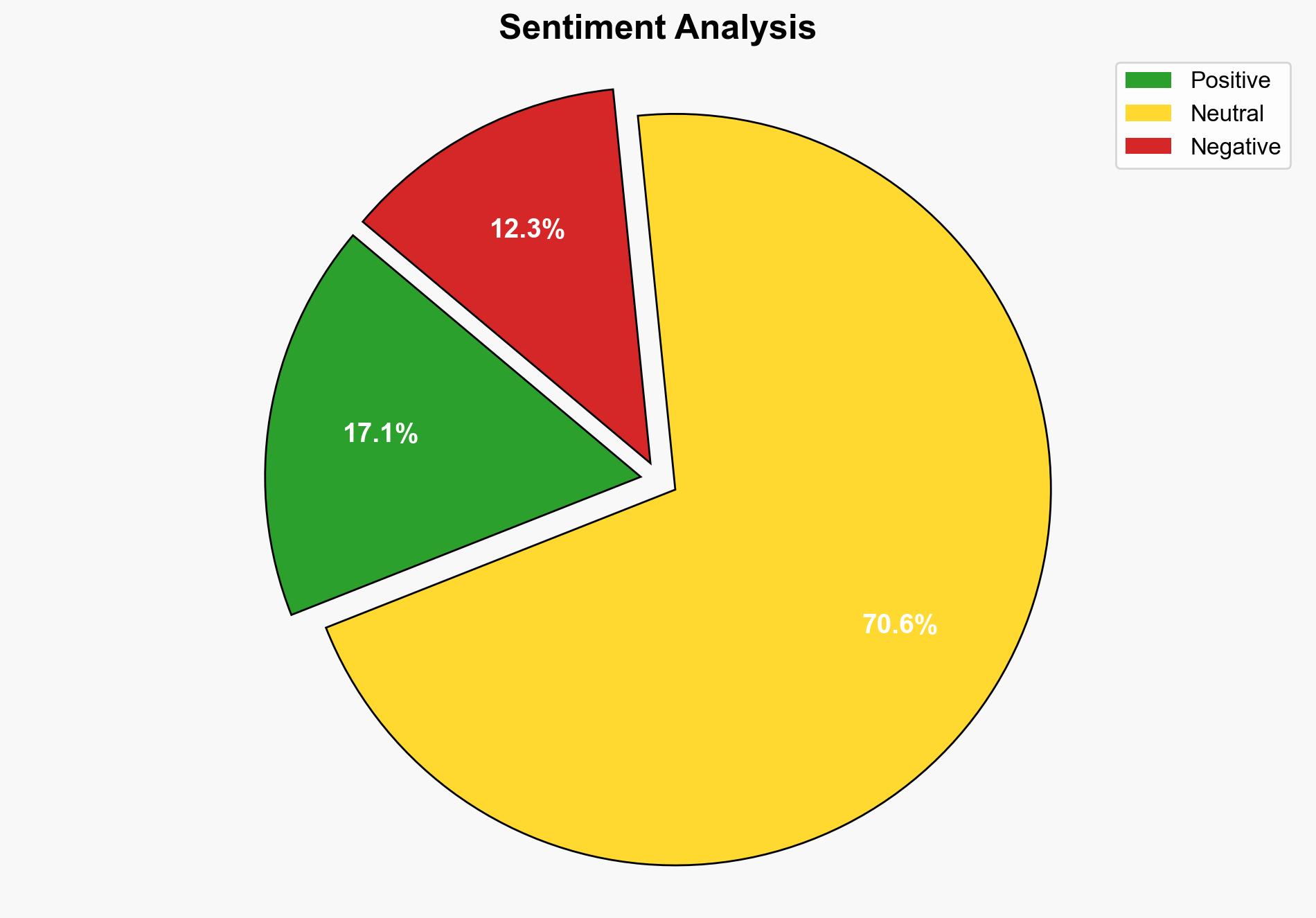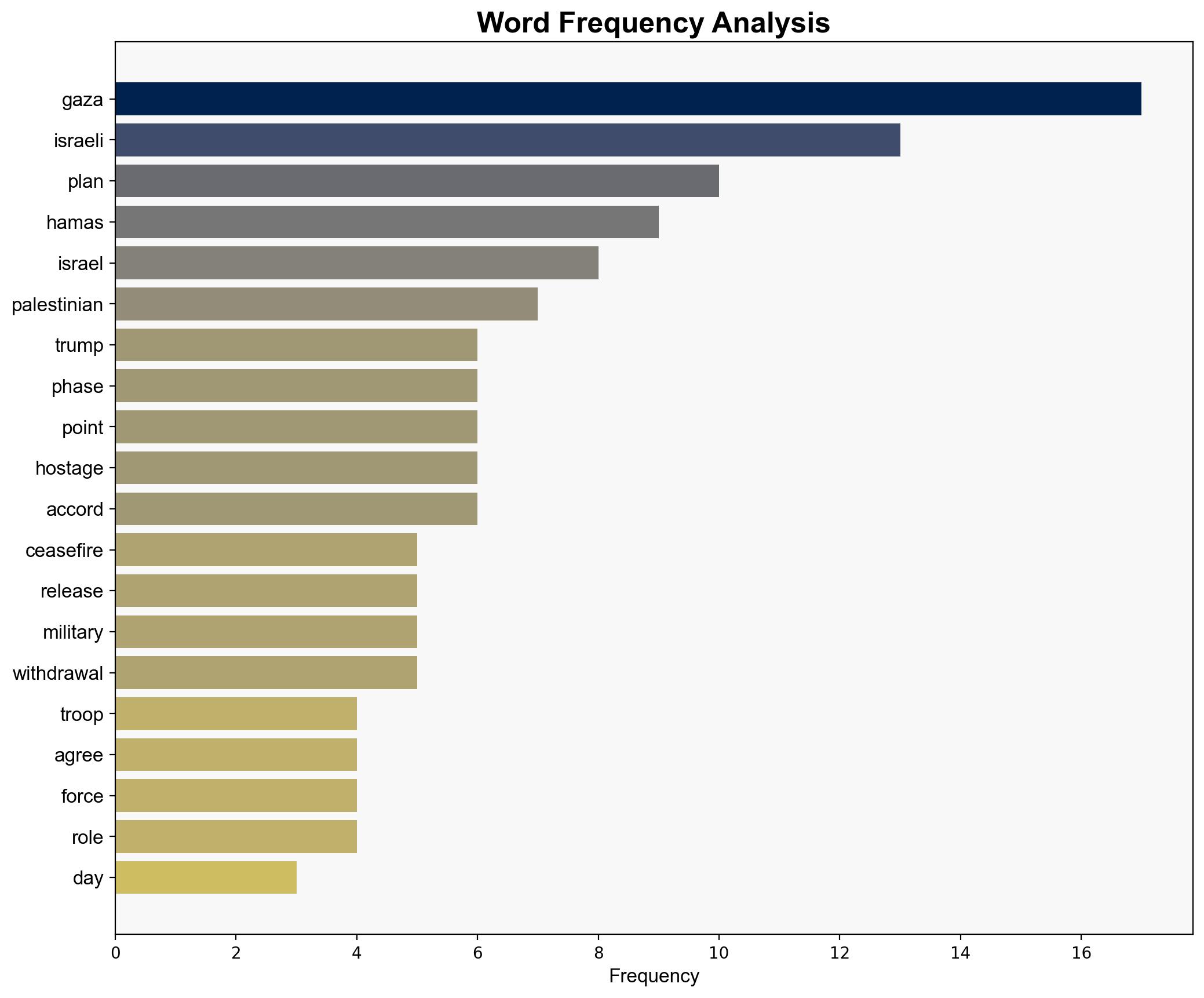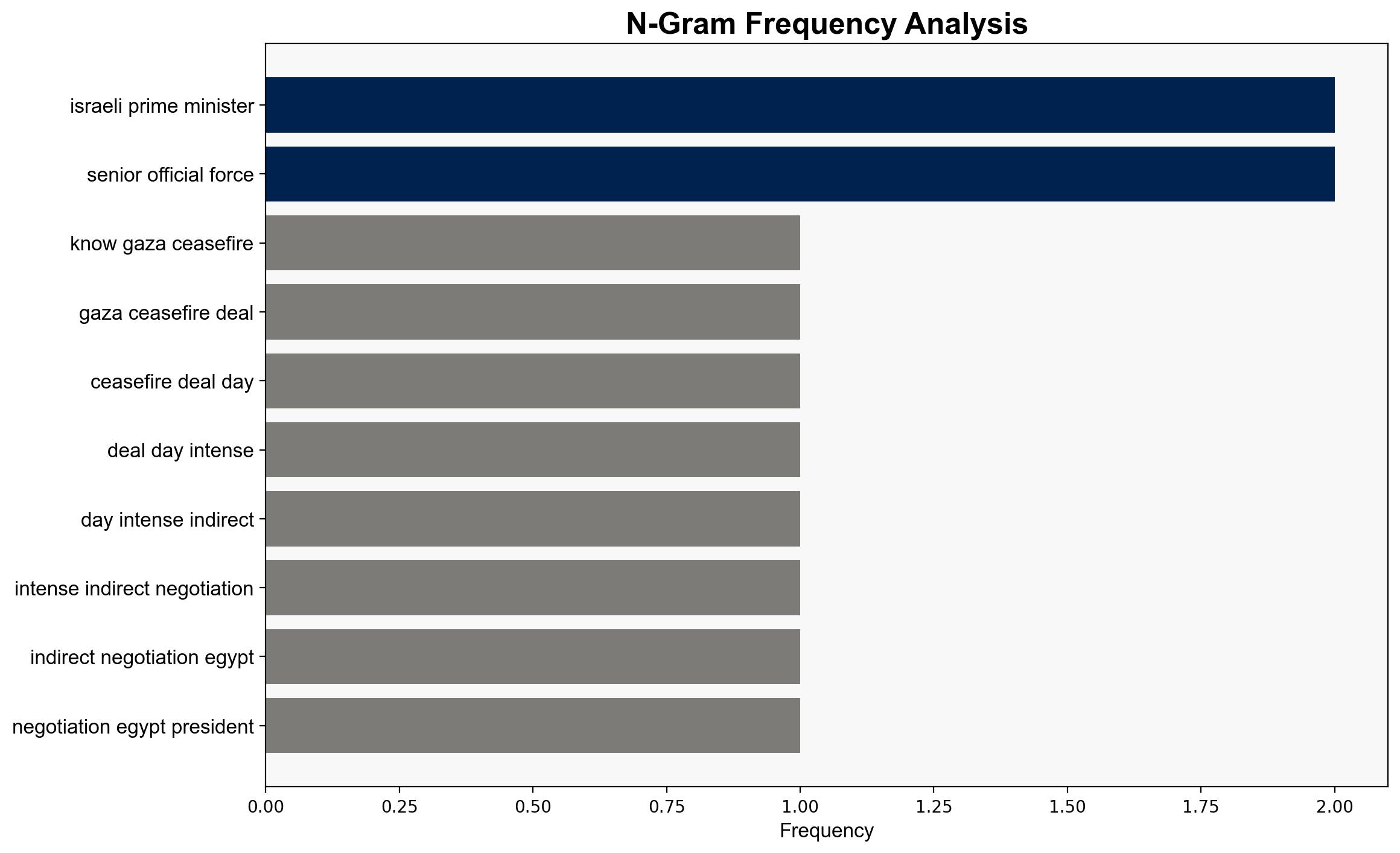What we know about the ‘first phase’ of the Gaza peace deal – BBC News
Published on: 2025-10-09
Intelligence Report: What we know about the ‘first phase’ of the Gaza peace deal – BBC News
1. BLUF (Bottom Line Up Front)
The most supported hypothesis is that the initial phase of the Gaza peace deal is primarily a tactical move by both Israel and Hamas to de-escalate immediate tensions while maintaining strategic positions for future negotiations. Confidence in this assessment is moderate due to the complexity and fluidity of the situation. Recommended action includes monitoring the implementation of the ceasefire and preparing for potential disruptions or escalations.
2. Competing Hypotheses
1. **Hypothesis A**: The ceasefire and initial phase of the peace deal represent a genuine commitment by both Israel and Hamas to move towards a long-term resolution, facilitated by international actors.
2. **Hypothesis B**: The ceasefire is a temporary measure, primarily serving as a strategic pause for both parties to regroup and strengthen their positions before resuming hostilities.
Using ACH 2.0, Hypothesis B is better supported by the continued military preparations and the lack of clarity on key issues such as disarmament and governance, which suggest that underlying tensions remain unresolved.
3. Key Assumptions and Red Flags
– **Assumptions**: Both hypotheses assume that external actors (e.g., Egypt, Qatar, UAE) have sufficient influence to enforce compliance. It is also assumed that both parties are rational actors seeking to maximize their strategic benefits.
– **Red Flags**: The ongoing Israeli airstrikes and the ambiguous terms regarding prisoner exchanges and governance indicate potential deception or lack of commitment to the peace process.
– **Blind Spots**: The role of non-state actors and internal factions within Hamas and Israel that may oppose the deal is not fully addressed.
4. Implications and Strategic Risks
– **Economic**: The humanitarian aid influx could stabilize Gaza temporarily but may not address long-term economic challenges.
– **Geopolitical**: Failure to progress beyond the initial phase could lead to regional instability, affecting neighboring countries and international relations.
– **Psychological**: Public perception of the deal’s success or failure could influence domestic support for leadership in both Israel and Gaza.
5. Recommendations and Outlook
- Monitor the implementation of the ceasefire closely, focusing on compliance and any violations.
- Engage with international partners to ensure humanitarian aid reaches intended recipients and is not diverted.
- Prepare for scenario-based outcomes:
- **Best Case**: Successful implementation leads to further negotiations and a sustainable peace agreement.
- **Worst Case**: Breakdown of the ceasefire leads to renewed conflict and regional destabilization.
- **Most Likely**: Prolonged negotiations with intermittent ceasefire violations and limited progress.
6. Key Individuals and Entities
– Donald Trump
– Benjamin Netanyahu
– Marwan Barghouti
– Tony Blair
7. Thematic Tags
national security threats, regional focus, peace negotiations, conflict resolution





